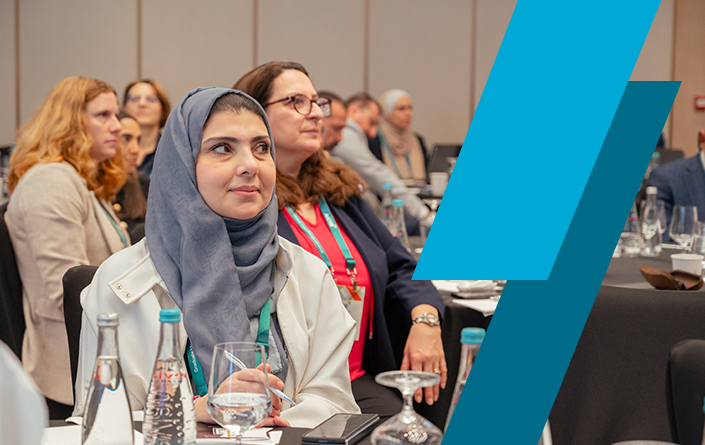Anne Hamby
Summary
Anne Hamby is an associate professor of marketing at the Boise State University College of Business and Economics. She studies how marketing narratives engage and influence audience beliefs and behavior in contexts related to consumer well-being. She hopes to aid those who communicate in the public interest in developing more persuasive interactions that will benefit society. In addition, Hamby aims to understand how the stories people tell about themselves can positively influence their self-view or sense of belonging and identity.
Description of Research Impact
First, the substantive focus of Hamby’s research is on topics related to consumer and societal well-being. She studies narrative persuasion or the ways in which stories (often encountered as persuasive promotional messages) influence consumer beliefs and behaviors. While her research aims to contribute to narrative persuasion theory, she tests her hypotheses in such contexts as adolescent health-risk behavior, consumer donations to nonprofits, and cause-related marketing. Thus, the substantive focus of her research consistently involves contexts relating directly to positive societal impact.
Second, Hamby communicates her research through partnerships with external organizations (e.g., Muse Storytelling, The Story Collider, and the Federal Bureau of Investigation’s Behavioral Analysis Unit). She believes it is not enough for scholars simply to publish their findings in academic journals and expect societal impact to occur. As a marketing scholar, she understands that it is critical to adapt one’s message, and the channels through which one sends it, to focal audiences. She therefore partners with organizations that use storytelling to achieve their missions. She conducts workshops and helps design educational materials that put her research findings into vernacular language, and she has also disseminated findings in popular press outlets such as The Conversation.
Finally, Hamby has worked with undergraduate students over the past two years in a special topics course that focuses on her research area, which she opted to teach in addition to her regular teaching load. She believes one of the best ways to create societal impact through research is to arm future generations with scientific literacy. Regardless of whether students intend to pursue graduate research degrees, literacy skills in data and science are important for them to possess. Therefore, in Hamby’s special topics course, undergraduate students test hypotheses about persuasive messages using narratives. They learn about the theory of narrative persuasion but, even more importantly, they grasp the workbench processes behind the science, knowledge that empowers them as potential future researchers and consumers of research-related information.
Examples of Research Impact
A current project exemplifying Hamby’s research impact is her involvement in a National Science Foundation (NSF) grant of nearly 600,000 USD. The research examines how narrative-based interventions in undergraduate engineering courses influence students’ persistence in their major, their sense of belonging in engineering, and their self-identity. The project involves a partnership with the nonprofit organization The Story Collider, through which students learn the science of storytelling, develop a personal story about how they overcame a challenge, and perform their story publicly. Women, people of color, and other groups who are underrepresented in engineering programs are particularly likely to leave their major due to feelings of impostorism and a limited sense of belonging. Initial results from the three-year narrative project are promising. They show that the intervention enhances persistence intentions, a sense of belonging, and an engineering identity, particularly among groups underrepresented in engineering; thus, the stories one tells about oneself in a public space enact self-persuasion. Hamby and her team have recently secured additional NSF funding to test a similar intervention among graduate students.
A second example that exemplifies Hamby’s research impact is her partnership with the FBI’s Behavioral Analysis Unit. For the past two years, Hamby has been invited to conduct a workshop with agents who are training to become profilers. The workshop focuses on the cognitive mechanisms underlying narrative persuasion and helps new profilers understand how they can use these principles in the work they do to protect the U.S.
Finally, a research brief about Hamby’s work published in The Conversation in 2022, titled “People Are More Likely to React to a Black Person’s Story of Injustice—Even if It Happened to Someone Who Is White,” is another example of Hamby’s research impact. The brief received over 10,000 web views in a single day and was one of the most-viewed articles published by Boise State faculty in The Conversation that year.
Select Publications
- Anne Hamby, “People Are More Likely to React to a Black Person’s Story of Injustice—Even if It Happened to Someone Who Is White,” The Conversation, April 5, 2022, https://theconversation.com/people-are-more-likely-to-react-to-a-black-persons-story-of-injustice-even-if-it-happened-to-someone-who-is-white-172122.
- Anne Hamby and Cristel Russell, “How Does Ambivalence Affect Young Consumers’ Response to Risky Products?,” Journal of the Academy of Marketing Science 50, (2022): 841–63, https://doi.org/10.1007/s11747-021-00834-7.
Supporting Link
- Embedding Personal Narratives in Engineering Courses to Improve Engineering Student Success, U.S. National Science Foundation






